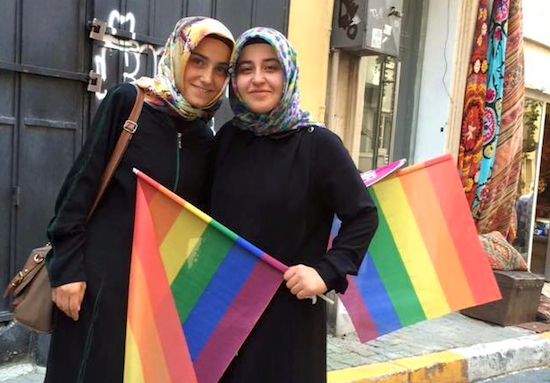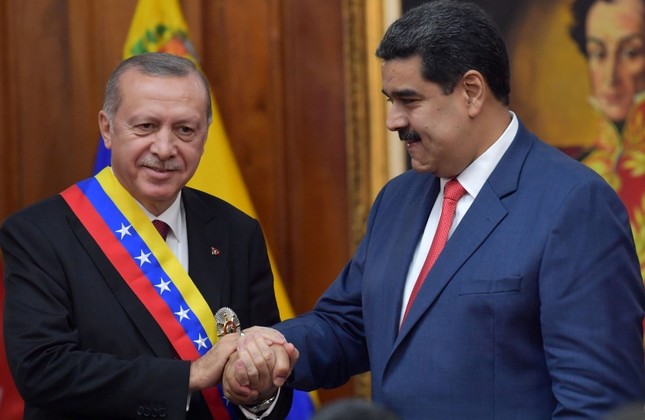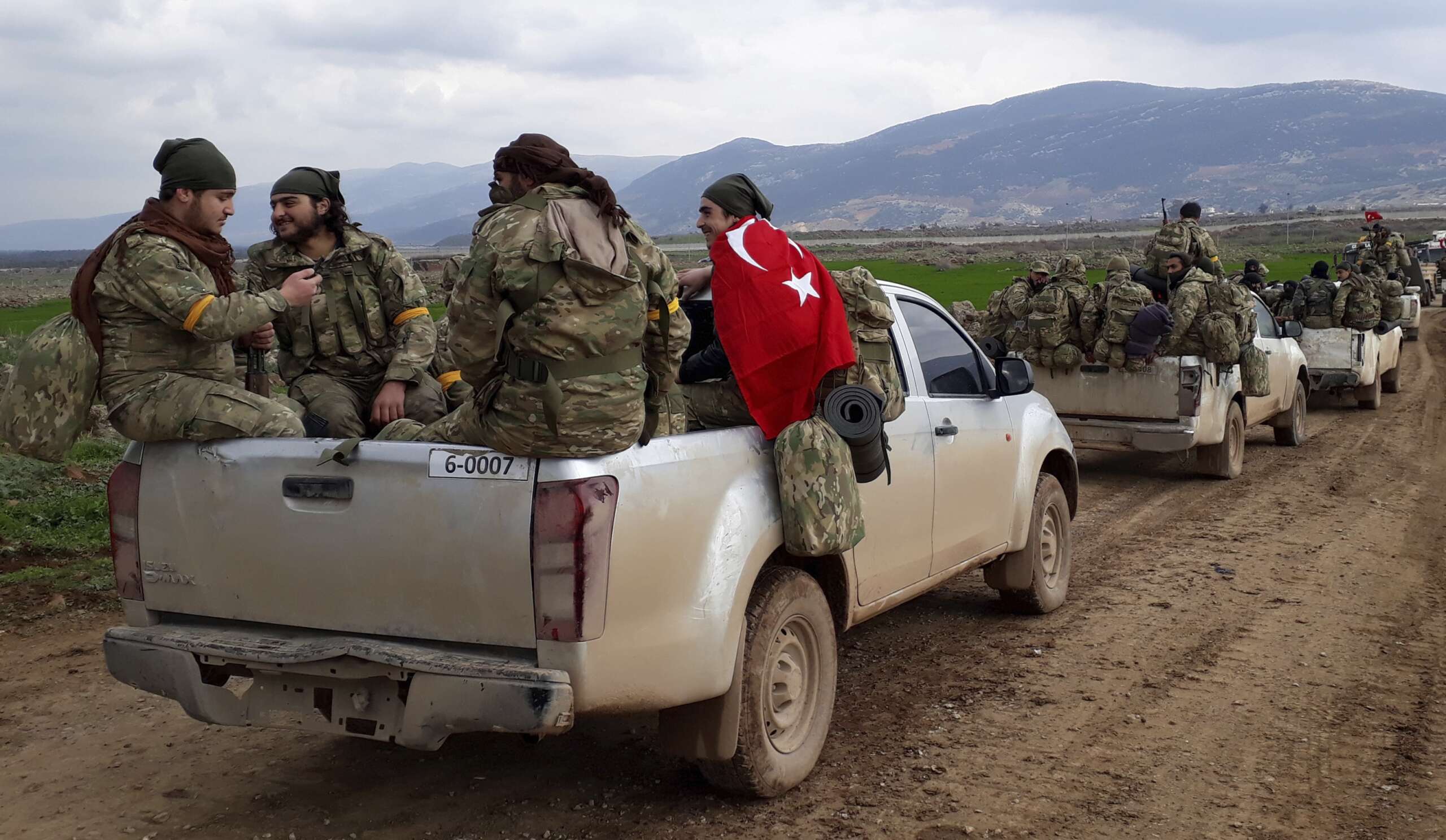[authorbox authorid=”27″ ] [dropcap size=big]J[/dropcap]uly 1 marks the fourth in year in a row that Istanbul’s LGBTQ Pride March has been violently suppressed. While the government had used the excuse of Ramadan to ban the march in previous years, insisting that homosexual behavior was especially disrespectful during the holy month, this year’s scheduled march did not intersect with the holiday. The government simply declined to give a reason for their decision, and cracked down on participants of the the “illegal” gathering with the familiar cocktail of tear gas, water cannons, nightsticks, and arbitrary arrests. For Turkey’s LGBTQ community, Istanbul Pride is in itself a source of immense pride, a hard-earned right that does not exist anywhere else in the Islamic world or in many of Turkey’s nearby neighbors in Eastern Europe. For President Erdoğan, Istanbul Pride is a source of humiliation and embarrassment, a reminder that Istanbul’s culture will always contain a subversive underworld that cannot be fully covered beneath the shoddy veil of Islamic grandeur he is trying to project.
Turkey has had a rather uneven history with LGBTQ rights. Homosexuality was decriminalized in the Ottoman Empire, Turkey’s political predecessor, in 1858, long before many of Turkey’s Western counterparts. But these legal rights have not protected the LGBTQ community from the wrath of social exclusion, and the government has arbitrarily cracked down on homosexual activity on a regular basis. Even so, many of Turkey’s most famous musicians and actors have been barely closeted members of the LGBTQ community; Zeki Müren, arguably the most beloved pop singer in Turkish history, was an unashamed cross dresser, and Dario Moreno, whose songs went on to become extremely popular in the rest of Europe, was well known for being gay. While being LGBTQ in Turkey has always been difficult, the community has not had to hide as far underground as in other countries in the Islamic world.
The Istanbul Pride March was first permitted to take place in 2003, a permission that, like many of the human rights reforms granted in Erdoğan’s early years of rule with the AKP (Justice and Development Party), was seen as a way to give the European Union the pretense that he was accepting their standards of human rights. While the first march was attended by only a few dozen brave souls, subsequent marches saw their numbers exponentially increase as Pride events gained acceptance throughout the world. By the 2010’s, attendance numbers were in the thousands, a visceral reminder to the world that Istanbul was the capital of LGBTQ culture in the Middle East, an event that other LGBTQ in the region communities could aspire to be like, unlike the exclusionary pink-washed Pride events in Israel.
It was the 2013 and 2014 marches that were, thus far, the zenith of Istanbul Pride. Bolstered by the insubordinate atmosphere that hung over Istanbul in the aftermath of the Gezi Park Protests in the early summer of 2013, that year’s march saw numbers reach an estimated 100,000 as anti-government dissidents marched beside their LGBTQ allies in a show of force that displayed to Erdoğan who the soul of Istanbul really belonged to. Ultranationalists and Pro-AKP Islamists hecklers, badly outnumbered, could only protest the march by standing in front of Galatasary High School and silently pointing to the sky, holding signs that said “Be quite, Muslims are dying” alongside badly pixilated images of dead Syrians and Uighurs.
In Witold Szabłowski’s The Assassin From Apricot City, arguably the best book produced on Turkish culture in the era of Erdoğan, the observation is made that Erdoğan’s burning hatred of the LGBTQ community informs many of the decisions he makes regarding urban planning. Szabłowski even goes so far as to suggest that the rationale behind the planned destruction of Gezi Park was due to it being a meeting place for gay men to meet. Alongside the humiliating foiling of his plans to destroy the park, Erdoğan’s hatred of Istanbul’s LGBTQ community reached its boiling point in the June 2015 election (the last democratically legitimate election in Turkey) as the community threw its support behind the minority-coalition political party of the HDP (People’s Democratic Party).
With his party losing majority rule in the Turkish parliament, Erdoğan inaugurated his long-running rollback of minority rights in Turkey by banning the 2015 Pride march. His efforts to suppress the march completely have been in vain, and every subsequent year has seen thousands of brave attendees gather and march until they are physically stopped by brutal methods, causing a yearly debacle in photos and videos of brutalized LGBTQ protestors that are widely circulated around the globe. By opposing the march, Erdoğan has actually managed to gather opposition support behind Turkey’s LGBTQ community, as supporting the march has become another means of resisting the government.
Although Erdoğan may claim to advocate for sexual and moral purity, one can simply take a quick look at his prominent cabinet members and supporters to notice the rotten core behind his claims. Sema Ramazanoğlu, the former Minister of Family Planning and Social Policy, sordidly defended an AKP-backed orphanage in Karaman that she was closely tied to, which turned out to be little more than a pedophile ring, with over 45 children reporting being sexually abused. Then there is Adnan Oktar, one of Erdoğan’s biggest supports who has recently come under global attention due to his utterly incomprehensible sex cult masquerading as an Islamist group. Or consider the bigoted talk show host Mehmet Ali Erbil, who’s infamous “salami incident” perfectly illustrates the homoerotic current barely concealed under the surface of AKP’s faux-Islamic piety. There is no informed citizen of Turkey that buys into Erdoğan’s moral posturing.
With Ramadan no longer coinciding with Pride Month, Erdoğan’s already flimsy excuse for banning the event carries no weight. Istanbul Pride may be illegal for many years to come, but having become an important part of the city’s culture, there is no way for Erdoğan or his allies to turn back the clock to how things were before 2003. That people still turn up in the thousands to march despite the heavy risk of injury or imprisonment indicates that Istanbul’s LGBTQ community is not going to give up its hard-earned gains. Even as it is being chased underground, Istanbul Pride is still the most important LGBTQ march in the Islamic world.
- Khashoggi , Journalism and Erdogan - 13/11/2018
- Turkey’s Christians Caught Between Trump and Erdoğan - 30/08/2018
- Istanbul Pride is too Big to Suppress - 16/07/2018



